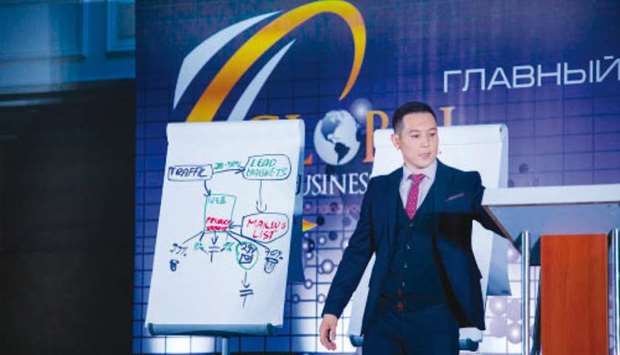One may see reduction in traffic on roads but there is certainly much more traffic on digital and social media platforms nowadays. Triggered by novel coronavirus pandemic, the social distancing phenomenon is pushing more and more people towards virtual world.
Social citizens are becoming isolated netizens. The influence of social media may have never been so much intruding and powerful in our lives as it is today. And, it does not come without a cost.
People staying at home are hungrier for correct and relevant information about what is happening in the world particularly relating to coronavirus outbreak. They are however more susceptible to fake news and rumours owing to their fears and reliance on social media.
Alibek Tnaliyev is an expatriate from Kazakhstan. With qualifications related to digital and social media management and marketing, he is well-versed with how virtual world works and how different platform should be used in a productive way. Community approached Alibeck, who has been working with a private company in Qatar for nine years, asking him about how netizens can use social media for constructive purposes during these unusual times.
When asked how he, with all his experience, evaluates different social media platforms as a source of news, Alibek said: “Social media as a source of information and news are one of the fastest ways and channels. However, here you also need to understand the risk of consuming false information. Especially during a period when information can provoke panic or worsen a crisis, people should be extremely careful with the source of information they follow.
“Using social media, a person is prone to make mistakes or add his or her own point of view to the true information, which can be erroneous and sometimes dangerous for the consumer of this information. Therefore, you must use it, but very carefully, always including your critical thinking, double-checking information from at least three to five other official sources before further sharing it.”
Alibeck underscores the potential of social media to influence the society in a positive way during the coronavirus pandemic. “In this situation, I believe that there is a huge potential for social media that can be utilised more efficiently. Since we live in a world of ubiquitous digitalisation, each user who consumes information can at the same time become the creator of content. Content can be conditionally divided into educational, informative, entertaining and motivational.
“Of course, in this regard, the most popular and useful is educational content. You can both consume it and create it. In both cases, you need to clearly know what you want, that is, you need to set a goal. If your goal is to acquire certain skills, then you need to write down exactly what skills and knowledge you want to get. Then, after doing a brief research, you can find useful sources from which you can draw this knowledge.
“Social media is a great tool to share knowledge and expertise. Firstly, this is the perfect way to analyse your experience and share for the benefits of others. When you write a post about solving a particular professional problem you rethink the working situation.
And when you respond to comments on the case – you pass your experience through the prism of other opinions, which means that you ‘pump’ your professionalism. Secondly, regular posts on professional topics create exactly that personal brand and gradually make you known in the professional community. Subscribers will share your successful posts, thereby attracting new subscribers from among their colleagues.”
The social media expert lays stress on the point that the netizens need to spread positive and motivational content during the exceptional times. He asked the social media users to look more for positive content that can keep them in good stead.
“Social media can be used to create motivational content, whether it is the launch of various motivational challenges, as well as for entertaining content, such as online concerts or online performance. It is worth a note that we all live in an era of ‘prosumers’ when everyone can be both a consumer and creators or producers at the same time.
“There is a flip side to all this – information hygiene. Do not forget that there is still a lot of offline tools that can make our life rich and eventful: books, conversation with family members at home, playing with children, etc.
You need to clearly determine the amount of time that you spend in social media and control that it does not take up most of your life. Let’s not forget that we still live in the real world. And the virtual world will still not be able to replace real communication and other features of our real lives.”

..
